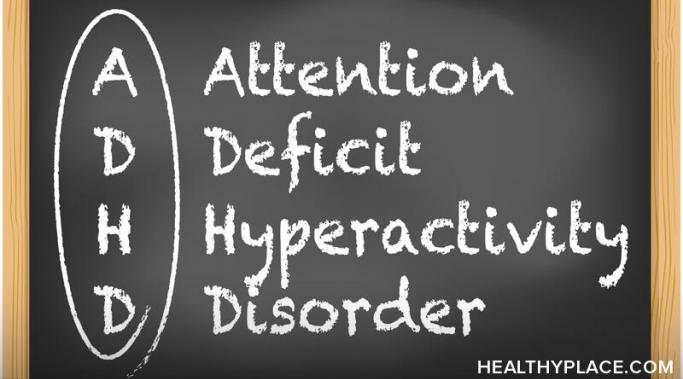I think it was Jessica McCabe of "How to ADHD" who referred to herself, someone with attention-deficit/hyperactivity disorder (ADHD), as an ADHD late bloomer. I have found numerous forums where ADHDers wonder whether (or assert that) they are late bloomers. There are several reasons why people with ADHD might be considered late bloomers and there are reasons why being an ADHD late bloomer is not such a terrible thing.
Adult ADHD Videos
Finding a balance between busyness and idleness is hard for those with attention-deficit/hyperactivity disorder (ADHD). Some with ADHD keep their active brains too busy, sometimes resulting in burnout. Other ADHDers find it difficult to accomplish anything and consider themselves to be lazy underachievers. Many with the condition swing between both, overachieving one minute and dropping the ball the next. I would like to talk about why we struggle with this juggling act and what steps to take when finding a balance in our lives with ADHD.
Writing with attention-deficit/hyperactivity disorder (ADHD) poses a challenge to both children and adults living with the disorder. Many with ADHD struggle with dysgraphia, a learning disorder that makes writing difficult on several levels. Problems range from the physical act of writing to organizing essays. After discussing ADHD and creativity in my last post, I wanted to go into more depth about why writing with ADHD can be so hard and what we can do about it.
Because obsessive-compulsive disorder (OCD) and attention-deficit/hyperactivity disorder (ADHD) are so different in theory, some doctors argue that they cannot occur together. However, they have a surprisingly high rate of comorbidity, which is when two medical conditions appear together, and many with ADHD report obsessive thoughts and behaviors. Continuing my series of posts about ADHD and comorbid conditions, I would like to discuss the similarities, differences, and possible treatments for OCD and ADHD.
Attention-deficit/hyperactivity disorder (ADHD) affects working memory as well as short- and long-term memory. In fact, poor memory is often listed as a symptom of ADHD, and numerous articles give great advice about dealing with ADHD forgetfulness and how to improve one’s memory. However, I and many others with ADHD can accurately remember certain facts or conversations years later. I’d like to discuss how ADHD’s relationship to working memory impacts our daily lives, why we struggle with memory, and what we can do about it.
I love getting new books, but attention-deficit/hyperactivity disorder (ADHD) makes reading difficult. Discovering what is between book covers is a wonderful experience. However, finishing those books is a different issue. As is often the case for people with ADHD, I have difficulties with follow-through on things, and that includes reading; other people with ADHD find reading difficult for other reasons.
My name is Noelle Matteson, and I will be writing for HealthyPlace’s blog Living with Adult ADHD. I am at the beginning of my attention-deficit/hyperactivity disorder (ADHD) journey, so I thought this would be a good place to share my experiences and to learn about yours.
Organization strategies for adults with ADHD help reduce frustration and regain time lost to disorganization. I feel organization strategies that work with adult ADHD will provide the foundation of being able to move out into the world and focus on living. My disorganization has robbed me of years of my life as I am always looking for something or moving things around the house creating another area of clutter. I needed a new organization strategy for dealing with adult ADHD, and this is what I decided to do.
My name is Kathy West and I am the new author of Living with Adult ADHD. I am so grateful to share my experiences with this illness and things that have helped me cope more successfully. I want to hear about your experience with attention-deficit/hyperactivity disorder (ADHD) and coping strategies you have discovered. Together, I believe we can improve our lives by sharing these things with one another.
Technology is a tool, and like any tool it can be used for either constructive or destructive purposes. When it comes to focus and productivity, it’s wise to embrace all the tools at your disposal when you have adult attention deficit/hyperactivity disorder (ADHD).









